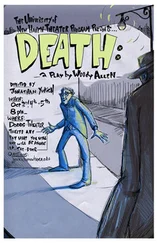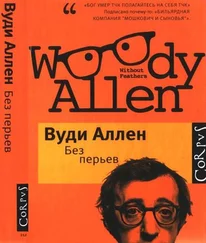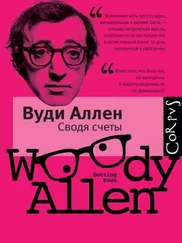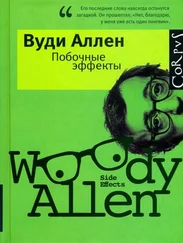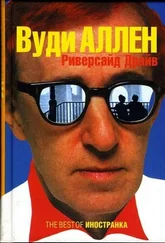Meanwhile, they’re calling him Roman. It turns out it’s Roman Abramovich, the Russian oligarch gazillionaire, which explains the pricey digs. Christ, the gardening bill looked more costly than the ticket sales of Rosemary’s Baby . When Gagosian shows up and we relate the story to him, he can’t seem to figure out how we could possibly misunderstand. I explain to him we discussed Roman Polanski, agreed to see him for dinner the next time Larry would be in town. So now, you come to town, you call, and say, “Shall we go to Roman’s for dinner?” How could I know you meant Roman Abramovich? I don’t know Roman Abramovich from Adam. What would you have thought, dear reader? Guaranteed you would’ve thought what I thought. You might’ve caught on quicker, as you don’t have my defective hearing, but it was a natural mistake. Anyhow, the story spread like cholera, and I was the rube of the Cote d’Azur social set, not to mention I get the horse laugh from all my enemies in show business, whose numbers are legion. Soon-Yi and I never lived that story down. Was it the worst thing that ever happened to me? No. The worst thing was getting stomach flu, or having to sit through The Flying Dutchman without my Adderall. Anyhow—onward.
I always wanted to do a movie that took place in New York in the late thirties, and in Café Society I got the chance. I worked with Kristin Stewart, Jesse Eisenberg, and Steve Carell in the main roles. Santo reproduced Manhattan and Hollywood in 1939, and I finally got to work with Vittorio Storaro, yet another genius cameraman. I’m so lucky. I’ve been made to look good starting with Davy Walsh, and then Gordon Willis, Sven Nykvist, Zhao Fei, Vilmos Zsigmond, Harris Savides, Carlo Di Palma, Javier Aguirresarobe, Remi Adefarasin, and Vittorio Storaro. If you know anything about cinematography, it’s like I just listed the 1927 Yankees. I liked Café Society . I was trying to make a movie with the form of a novel. The original title was Dorfman: The Novel . For some reason we couldn’t use it.
I changed the title of my next film, too. It was not originally called Wonder Wheel . It was then the trouble started again. With the making of Wonder Wheel , I was back in Tennessee Williams territory, but thanks to the cast and Vittorio and Santo, I did a better job. Raised not far from Coney Island, I had enough of my own self in there along with gangsters and a maladjusted kid who hated school. We also decided to use the color poetically and that Vittorio would change the lighting in the middle of scenes to underscore the emotions and stylize the drama. Still, despite a lot of original creative work, I had one toe or full foot in the French Quarter. The movie, and particularly Kate and Vittorio (although I think the whole cast), got a raw deal because of circumstances, which I’ll now get into. But first, you should know the original title was Coney Island Whitefish . For those unfamiliar with the origin of that local nomenclature, it refers to the ubiquity of sex in the night under the boardwalk. The condoms were then thrown into the Atlantic, only to float back ashore with the incoming tide, and they were referred to as Coney Island Whitefish. The scene explicating this bit of ichthyology was cut from the movie, and Alisa, the editor, saved the day with the title Wonder Wheel .
And now, unfortunately, at this point, I am forced to return to the tedious subject of the false accusation. Not my fault, people. Who knew she was so vindictive? This time, the main victims were the hugely gifted cast of the movie and its genius photographer. I do not include myself, as I had the great pleasure of making the film, was handsomely paid, was inured to tabloid press and scurrilous accusations, and resigned to the fact that no amount of evidence or common sense was ever going to move the needle in the direction of reality. The plot had now taken an unexpected twist because Dylan was no longer seven but a grown woman of thirty-plus. Mind you, I have not been allowed to see her, speak to her, or correspond with her for twenty-three years. Everything she has heard about me since barely turning seven has been taught to her by Mia.
Meanwhile, as Moses poignantly describes, Mia makes her rage against Soon-Yi and me the center of everyone in the household’s life, nurturing that fury and constantly reinforcing the idea to Dylan that I had abused her. I’d always hoped when Dylan grew up she would somehow realize how her mother had used her, taking full advantage of her age and vulnerability to deprive her of her father, knowing it was the surest vengeance toward me. I had hoped Dylan would reach out to me as her brother Moses had done. I thought for sure she would remember how much I loved her, how much I doted on her, how aggressively I fought to visit her or just to speak to her, and she would want to see me. She would at least want to discuss all that happened and put it in perspective. I felt sooner or later it would become clearer the abuse story was something she might at least be willing to examine. I hoped perhaps with the support or just the curiosity of her husband she might want to hear another side and take a moment to see if any of it made sense. What drawback could there be, I thought, if a conversation took place with Dylan and her husband present, or with her shrink if she has one. Anything to just review the version her mother has taught her versus the results of all the contradictory findings of every investigation. Now, I realize the oddsmakers in Vegas would make that meeting a million-to-one shot. Not only that but it will always be sold as: Dylan is free to do what she likes. She’s a grown woman. She chooses not to see her father as it would be too traumatic for her.
Mia might even say she’s actually encouraged Dylan to see me, but one can imagine what the encouragement or freedom of choice accorded Dylan sounds like. When Moses, at thirty, told his mother he wanted to reach out to me, there was hell for him to pay and he was banished from the family. “My brother is dead to me,” said Dylan, and one is reminded of Mia going around her house in a frenzy with scissors cutting Soon-Yi’s head out of every wall-hung family photo so they looked weirdly surreal. Fortunately, Moses defied the bullying and Mia’s insistence that even though I was his father and he had feelings for me, he must forever shun me. Mia made it clear any contact would constitute betrayal. Her intransigence caused Moses to experience encroaching thoughts of being yet another adopted child suicide; finally, on the advice of his therapist, he called me to reconnect. Predictably, he instantly became a nonperson in his mother’s eyes, and of course the blacklisting became required family policy. Hence, “My brother is dead to me.” This will give you some idea of the cult-like obedience demanded of the children. Anyhow, imagine my sadness when not only did Dylan not want to see me but instead wrote an “open letter” saying I molested her. The “openness” is important, as the strategy behind going public is not to resolve anything but to smear me, her mother’s goal. With the emergence of the #MeToo era, the letter could then be fobbed off as “speaking out” and taking advantage of a legitimate movement. The fact that pushing a false accusation exploits genuinely abused and harassed women does not seem to matter.
For a long time, Soon-Yi was urged to speak up and tell her story but she was too busy raising a family, and she did not want to sink to responding to a mother who called her retarded, spread lies that she had been raped by the husband she loved, and fabricated a tale that her birth mother was a prostitute. Soon-Yi did finally speak up, as we will see. Sidebar: Despite all of Mia’s faked outrage over alleged rape with an underage girl, she flew to London to testify on behalf of Roman Polanski who had actually admitted to and been jailed for sex with an underage girl. (A genuine victim, the woman is now grown up and forgives Roman but sees Mia for what she is. When Mia tweeted an apology to her for testifying on Polanski’s behalf, the woman wrote, “I didn’t need her apology and didn’t want it. I felt used by someone pushing their own vendetta against Woody Allen.”) Ronan Farrow always publicly urged women to speak out, but when Soon-Yi did tell her story, he did not like what he heard. He is fine with women speaking the truth as long as it’s Mom’s version of the truth.
Читать дальше
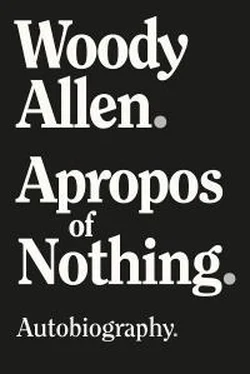
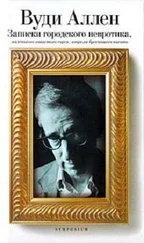
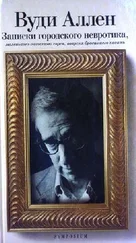
![Вуди Аллен - Парящая лампочка [=Свет плавучего маяка]](/books/94079/vudi-allen-paryachaya-lampochka-svet-plavuchego-mayaka-thumb.webp)
